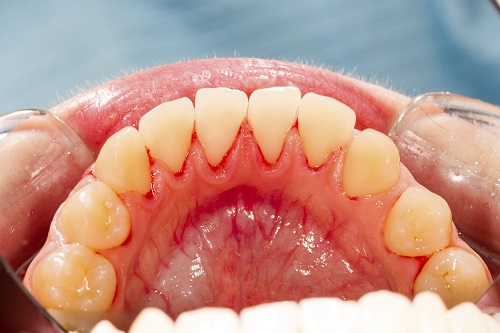
Bleeding gums are often associated with the earliest stage of gum disease, commonly known as gingivitis. Untreated, gum disease only gets worse. Gum inflammation allows for oral bacteria and food particles to get trapped underneath.
The bacteria continue to grow, causing gum recession and attacking your teeth and bone. Gingivitis is easily reversed with regular brushing and flossing, and the bleeding will stop. But what if your gums always bleed?
The Way You Brush
If gingivitis has been ruled out, and your gums are still continuing to bleed, it can be the result of several different factors. One cause of chronic bleeding gums is how you brush your teeth. People often think that brushing with a hard-bristled brush, and doing it vigorously must be better.
After all, you want to remove as much plaque and bacteria as possible. However, brushing too hard can irritate sensitive gum tissue and cause it to bleed. Try switching to a soft bristled brush and make sure you take care when you brush your teeth.
New to Flossing
If you are new to flossing, or floss irregularly, there is a much greater chance that your gums will bleed every time you perform this important task. Make sure that you floss every day, and do so gently, taking care not to snap the floss between your teeth against your gums, and the problem should clear up in about a week.
Medications
Certain medications thin your blood. As a result, they impact your blood's ability to clot, which can lead to easier bleeding. If your gums constantly bleed, check your medications for side effects.
Pregnancy
Hormonal changes, particularly those related to pregnancy, alter the way that your body reacts to oral bacteria. As a result, your gums may become red and inflamed, and they may bleed, a condition known as pregnancy gingivitis. Regular brushing and flossing, along with a visit to the dentist, can help to prevent the condition from worsening, and it should clear up after the pregnancy ends.
Bleeding gums should never be ignored. Contact our office to schedule an appointment to figure out the cause and how you can fix the problem.